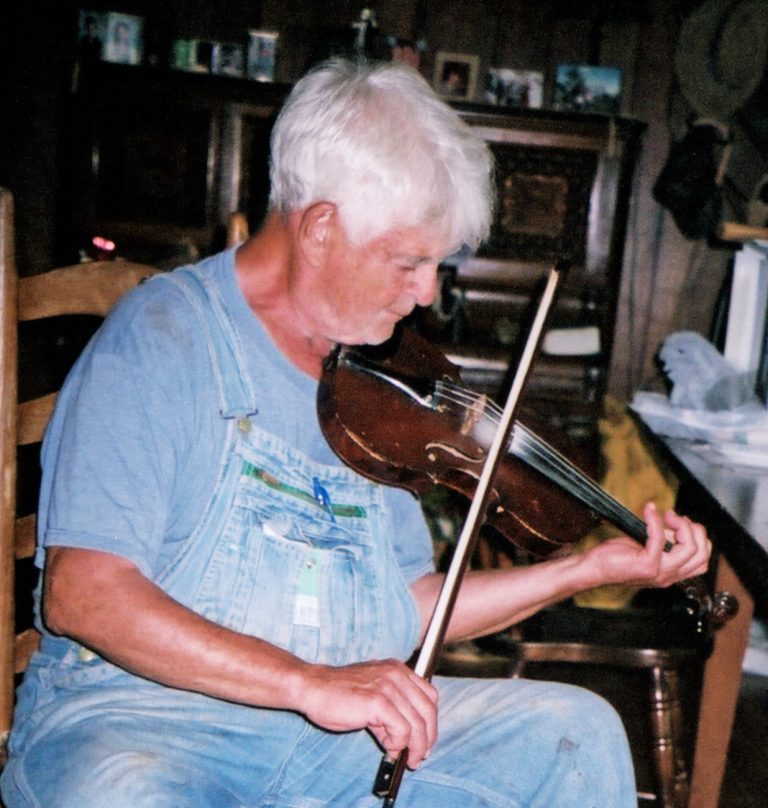George Cecil McLeod, Jr. lived for almost four decades within a mile of his birthplace near Leakesville, in rural southeastern Mississippi. He represented the fifth generation of McLeods in the state. His father, a logger, farmer, and schoolteacher, enjoyed music, and was a fine dancer, but did not play an instrument. But fiddlers were far from hard to find in the area. As a teenager, McLeod regularly sought out Jody Denmark, an influential local fiddler. Even earlier, he attended local dances: “My uncle played the fiddle. And that’s where the young folks up in Leakesville would gather up on Saturday night to dance. They’d clear the furniture out of one room and the hall, and Uncle M. L. would play, with some of the children accompanying him. They danced in the bedroom and in the hall connecting. Momma and Daddy enjoyed dancing. They’d carry my brother and sister to the dance.” By the time McLeod finally owned a fiddle, his head was full of fiddle tunes.
Fiddling was still part of daily life in South Mississippi during McLeod’s young adulthood in the 1950s. He performed at square dances and various other functions all over Greene County and neighboring counties. When McLeod entered the dairy business in the early 1960s, he had less time to fiddle, which coincidentally was the same time period in which fiddling was being pushed aside in the popular consciousness.
But McLeod soon returned to fiddling, which became an essential ingredient in several successful campaigns for state senate in the early 1970s. Bluegrass festivals also arrived in the area at about this time. McLeod became friends with Bill Monroe, which resulted in an invitation to play on the Grand Ole Opry in 1979 (he had already been part of Mississippi’s delegation to the Festival of American Folklife 1974).
Senator McLeod farmed in Greene County and performed regularly at a wide variety of venues within a few hours’ drive. His main guitar accompanist was Lee Fulcher, a now-retired postal worker who lives in Wiggins. They played at fiddle contests, bluegrass festivals, family reunions, in church, in restaurants, and for historical associations. He also performed at several annual gatherings of former members of the Mississippi State Senate.
At these events, a half dozen musicians jam while former and present power brokers flow around the musicians, sometimes listening to the music, more often ardently inquiring about family, friends, and pending legislation. The musicians, all invited by McLeod, came from the bluegrass environment, the fiddle contest world, and from long-term associations made through jamming at all sorts of events. At one later reunion, George Cecil fiddled, laughed, sang, socialized, was sought out by the Republican candidate for governor, twisted arms to gather musicians for a square dance he was to call the next night, and then continued fiddling.
McLeod died on September 5, 2011.
-Chris Goertzen
For more information on McLeod and his fiddling, see Chris Goertzen, “George Cecil McLeod, Mississippi’s Fiddling Senator, and the Modern History of American Fiddling,” American Music 22/3 (fall 2004), 339-379.

